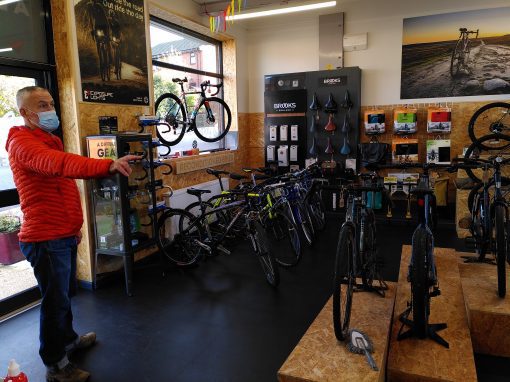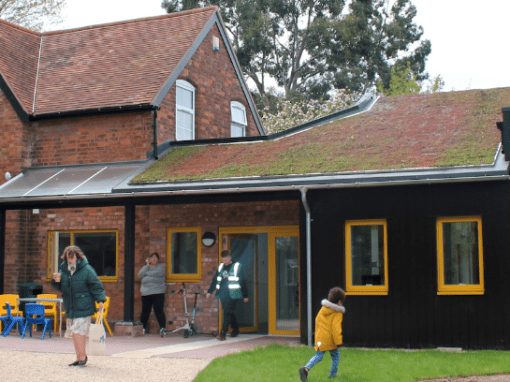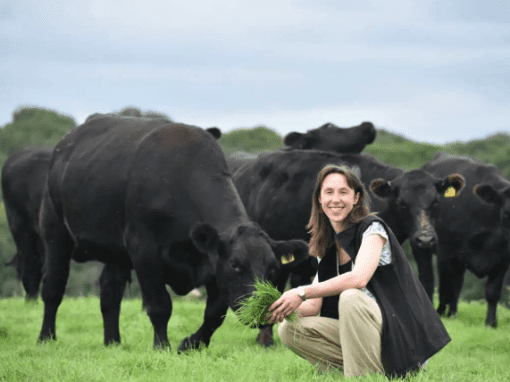Founded in 2015, The Platform Café is a food project and community kitchen based near Loughborough Junction in Lambeth, London. Located at a busy intersection of roads and railway tracks, The Platform provides a valuable service in a community where many residents have limited access to affordable, nutritious food. The café is known in the area as an inclusive space with good, affordable, and healthy food, a beautiful neighbouring community garden, and useful signposting to volunteering opportunities, wellbeing support, and employability training.
The Platform Café was started by Charlotte O’Connor when she was in her 20s, with colleague Jo Gilmour. They were later joined by head chef Sophie Lawrence, and today they support other local young people’s opportunities. The team runs formal training, for instance they were part of Groundwork’s ‘Our Bright Future’ programme of vocational training for unemployed young people interested in environmental work. They offer regular shifts to volunteers who other organisations might find difficult to accommodate. More recently, they have employed young people facing barriers to employment through the Kickstart scheme. They practice what Charlotte calls ‘patient employment’: “You can keep burning the toast until you get it right, and no one is going to tell you off.”
Exchanging knowledge, cultures, and lived experience is the lifeblood of the café. While this ethos does translate into enabling young people to develop new skills, ultimately it is about creating stronger communities, social connection, and confidence.
“It’s not always even about skills and employment. It’s often about connection, for people who are feeling a bit displaced. The café training and volunteer programmes can act like a holding space for people whilst they are working things out. And when they are feeling a bit more confident, they move on. It’s about giving people the tools to live their own lives independently.”
Co-founder and manager Charlotte set up the organisation as a pop-up project in her mid-20s. She quit her corporate job in communications and marketing, and started volunteering at her local community farm. When volunteering at the farm, she became interested in how she could use the surplus food and disused public toilet across the road to create a café or food hub.
“I wasn’t really conscious of it at the time, but I definitely felt a bit alone and atomised at times in London. The thing that was special about the farm was the intergenerational nature of it. It felt quite special and unusual, to have a space to hang out with people with very different lives and experiences, but where you still felt connected. You could always go at specific times, and you would have tea and cake together at the end of the session. It was about coming together. I think those are the values we really wanted to bring over to the cafe. People could just come and have a sense of connection.”
To explore the idea, Charlotte signed up for a ‘Start your own enterprise’ course for unemployed people in Lambeth. The café, originally conceived as a pop-up initiative featuring guest chefs, was the prototype she developed through the course. At the training, she met Jo, who also wanted to explore a business combining creativity and social connection, and they joined forces. Together, they created the vision for the café to be a way to connect with people through food. The prototyping went well, and Loughborough Junction Action Group agreed to be the cafe’s ‘nurture organisation’, hosting it as a residency in the building. “If I’m honest, we didn’t set out specifically to open a café. We always wanted to start a food project or somewhere people could come together and eat together. It was all about tackling loneliness and social isolation. But actually, what we found was that there were very few other cafes around selling healthy food and so it met an unexpected need for people just wanting to buy lunch.”
Elias Hagos (age 23) joined The Platform Café in 2020 after reaching out to a helpline when he needed support. The helpline referred him to the charity Groundwork, which then helped him find a job with The Platform Café. Elias reflects that it all happened very quickly and that, at the time, he could never have imagined it would lead to a job or have such a positive impact on his life. His autism, as well as his life experiences, had previously acted as a barrier to employment and he had not worked for two years. However, the café has provided an emotionally supportive place to grow and recover. “At the beginning it was a bit awkward. I am not a very social character; I tend to keep to myself. But the more I worked here, the more I grew more confident and assertive, and felt comfortable enough to be myself… There was a lot of support, patience and understanding. Before, I was really hyper-sensitive to failure. If I was doing one thing the wrong way, I would be really apologetic and uncomfortable. But Charlotte, Jo and Sophie are really understanding. They don’t shout at me if I make the same mistakes.”
Feeling part of a wider support community has also been important for Elias, and he respects the commitment and values that the café is built upon. His role at The Platform Café has been a stepping stone for him into other opportunities. For instance, he met his other current employer, a local brewery, whilst working at the café. His long-term ambition is to become an artist, and the cafe team is helping him work towards this, for instance by connecting him with a local author – a customer of the café – to be his mentor. In addition, he has recently started studying to retake his English GCSE and is learning how to code.
Moving forward, The Platform Cafe is looking to offer more local young people like Elias opportunities to build their skills and wellbeing, and become rooted in the community. They’re now looking to buy a coffee machine as many young residents want to find work in coffee shops, and to expand their social prescribing referrals. They have also recently started a new work placement programme with Michael Tippett College in South London for young people with special educational needs. Charlotte is working with the cafe’s host organisation, Loughborough Junction Action Group, to ensure that their governance is reflective of the local community, and represents young people accurately in decision-making.



